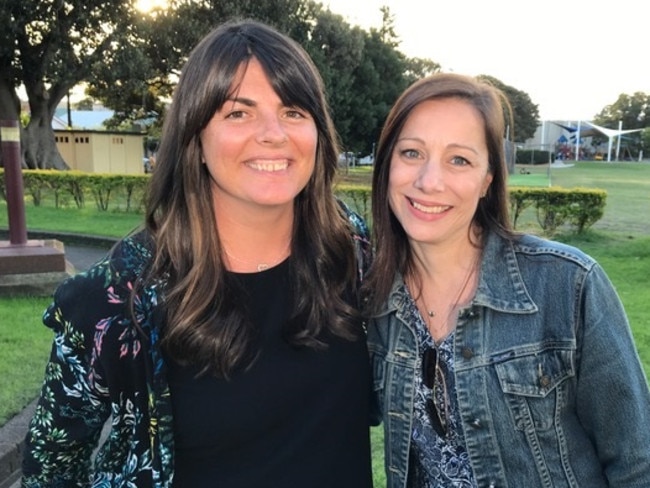The taboo topic affecting 282 Aussie women a day that can cause long-lasting grief and mental health problems
HUNDREDS of Aussie women suffer a miscarriage every day, but despite the huge numbers, the topic is still strangely taboo and — until now — there has been little support for grieving couples.
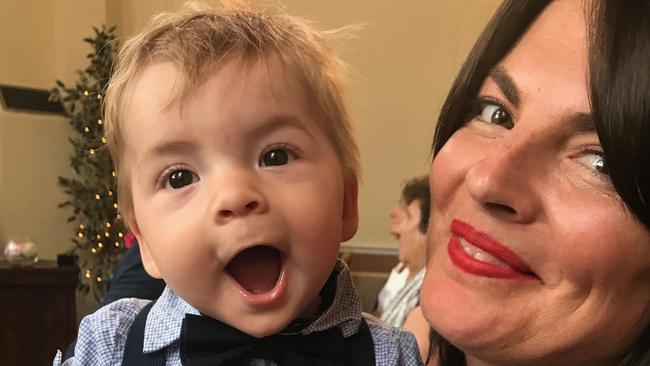
AFTER being devastated by two miscarriages, Samantha Payne was in disbelief when she fell pregnant with her “rainbow baby” Johnny. But the joyful news turned her into a “nervous wreck”.
Grief over her lost pregnancies began to grip the mum-of-two who developed an irrational fear while carrying Johnny and after his birth which spiralled into full blown post-partum anxiety and depression.
Shockingly, 282 women a day in Australia experience early pregnancy loss before 20 weeks gestation — that’s 103,000 couples a year — with one in four women under 35 experiencing a miscarriage. By age 35, this increases to one in three, while half of all pregnant women over 40 will lose their baby to miscarriage.
Despite these eye-opening statistics, Ms Payne, who has set up The Pink Elephants Support Network, an Aussie charity to help women who have experienced early pregnancy loss, says people still don’t talk about miscarriages “and if anyone did talk about it, they’d whisper”.
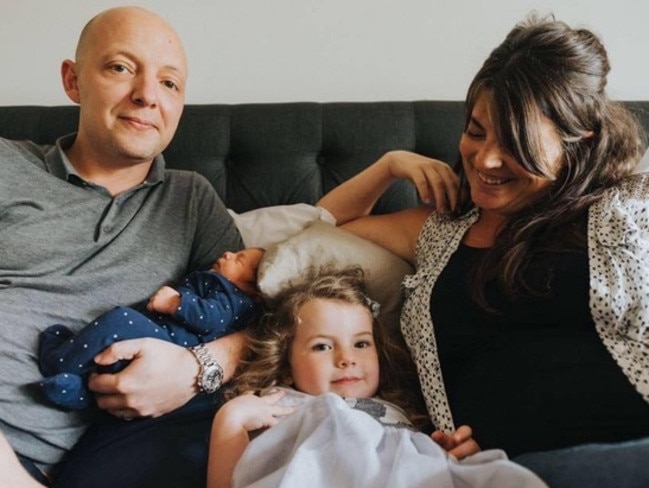
“My first miscarriage was devastating,” Ms Payne, who also has a daughter Georgie with husband Stewart, told news.com.au. “But I felt I could get past it.
“Despite being told how common it was, I was shocked and dismayed by the lack of support offered to me. I found myself turning to Dr Google at 2am, whilst bleeding heavily and experiencing contractions.
“Afterwards, people would say, ‘You’re so lucky to have Georgie’, but we also wanted another child.
“When it happened again straight away after, my grief became a mental health issue.
“It all came back to everything that had happened.”
She said her situation was not uncommon. While 70 per cent of women who experienced a miscarriage would go on to have a healthy full-term baby, what was overlooked was the anxiety they experienced during pregnancy.
“Thirty per cent of these women will receive a clinical diagnosis of post-partum anxiety or postnatal depression,” Ms Payne said.
After becoming pregnant with Johnny, now 18 months old, who she described as her “rainbow baby” (a child born after a miscarriage), she didn’t believe she was pregnant and became a “nervous wreck”.
“I didn’t experience the joy [during pregnancy] I did with Georgie,” Ms Payne said. “My pregnancy with my rainbow baby was nine months of conflicting emotions and absolute fear at every scan or twinge.”
After being diagnosed with post-partum anxiety, she went to see a counsellor.
“It’s something that needs to be spoken about, it needs to be normalised,” Ms Payne said. “It’s really overlooked. People do not talk about it. It’s still a very taboo subject.
“We want to educate people around miscarriage, encourage them to talk about it.
“I’m lucky I’ve been fortunate enough to go on and have a second child, my beautiful baby Johnny, but I still remember how alone and isolated I felt by losses.”
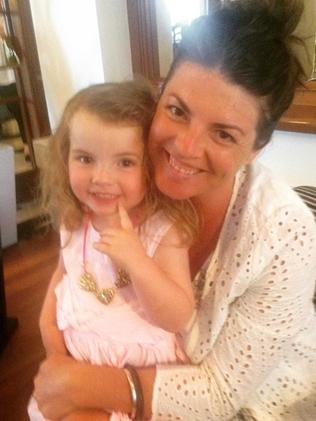
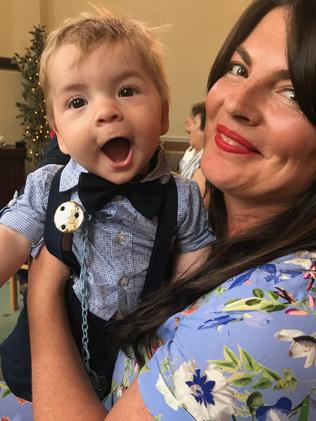
Fertility expert Professor William Ledger, head of Discipline of Obstetrics and Gynaecology at the Royal Hospital for Women in Sydney, said miscarriage was becoming more common as some women waited longer before starting a family.
He said most were due to a chromosome problem in the embryo — which became more common with female and male ageing — but added there were many causes of early pregnancy loss and it wasn’t always possible to find any cause, which could be very distressing as pregnancies continued to be lost.
“I think that most of us will have experienced a miscarriage, either personally or through a family member or close friend,” he said. “Miscarriage can feel like the loss of a child. Much has been written about the emotional burden and grieving that follow such a loss.
“In the past many women and families kept quiet and internalised their sadness. It was common not to tell anyone about a pregnancy until the 12-week mark had passed so if there was a disaster then no one else would know.”
After her miscarriages, Ms Payne said she felt “isolated”, struggled to talk about the grief she was experiencing and felt there was a lack of support services for women who had suffered an early pregnancy loss.
She said a chance connection — made on a Facebook post about miscarriage — with Gabbi Armstrong led to a coffee date in which the pair spoke about their feelings and with that, the Pink Elephants Support Network was born.
Ms Payne, a former teacher, quit her part-time job in the charity sector and together with Ms Armstrong they co-founded the Pink Elephants which supports, nurtures and empowers couples through infertility and miscarriage.
The Sydney-based charity prints and distributes free leaflets and informational material about miscarriages and the services they provide to St George Hospital, Royal North Shore, Gosford Hospital and the Royal Hospital for Women and hope to extend the program nationwide.
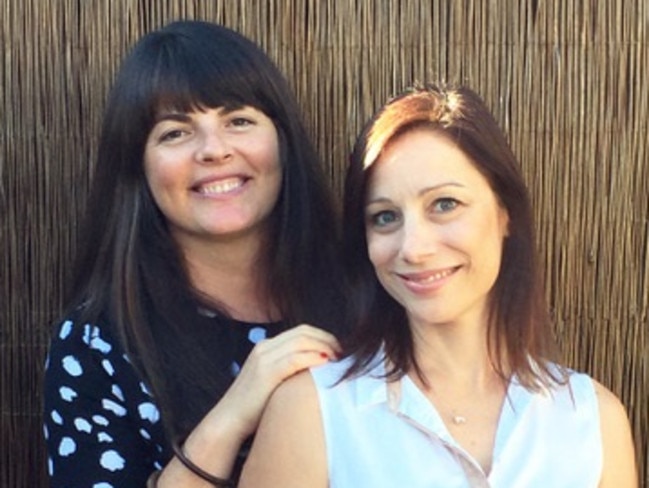
“We believe that miscarriage is an individual journey but it is not one that should be walked alone,” Ms Payne said. “We’ve created emotional support literature in the form of resources around emotional wellbeing and supporting your partner.
“We would like to take it to the next level — we want to reach every one of these couples in Australia. Our aim is to have these distributed nationally in all hospitals, clinics and surgeries by 2020.”
To do this, the Pink Elephants Support Network is lobbying for government support and corporate sponsors who would like to get involved with the organisation.
Earlier this month, in a national first, the charity started a program to provide women with six free, confidential and personalised counselling sessions with a fully trained up “Peer Support Ambassador” — another woman who has experienced a miscarriage.
Prof Ledger said Pink Elephants was a “remarkable team and are shining some light on to a common, often tragic yet seldom-discussed topic”.
“Thankfully we are gradually becoming more open about these sad occurrences, which can allow groups like Pink Elephants to offer help,” he said.
“I’ve seen women who carry their burden of loss many years later, having never discussed their grief with anyone, and I’m supportive of the Pink Elephants initiative as they try to help ease some of this pain.
“We should not try to change the grieving process — it’s healthy and necessary — but we can try to guide people through it and share their burden where possible. The best people to do this work are those who have been through a similar process themselves.
“I’m confident that the Pink Elephants group have prepared useful and factual information on this topic. They are helping to fill a large gap in the care we can offer to women at the Royal Hospital for Women and across Australia.”
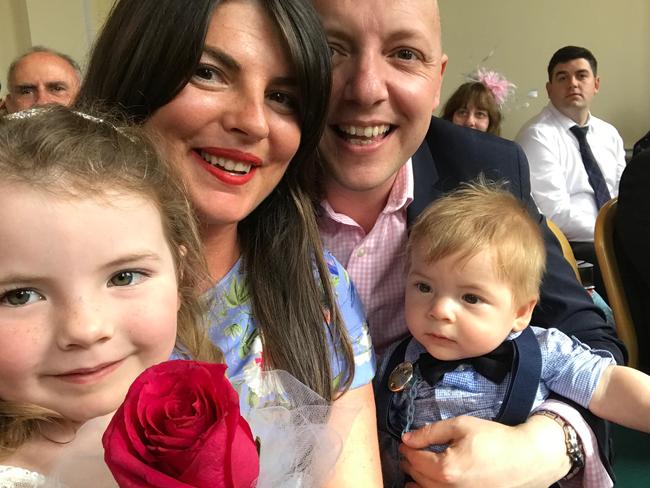
The Peer Support Program has trained up six ambassadors to work with women who are experiencing difficulties following pregnancy loss. Ms Payne said she hoped to train up another six ambassadors in the near future and the network was able to refer women to other support services.
“We want to reduce the feelings of isolation many women feel by connecting them with the
right mentor who can help to provide reassurance, information and support to be able to
move through their very real grief,” she said.
“There isn’t currently this level of support available for women and their loved ones
experiencing early pregnancy loss and miscarriage, which can make women feel like their
pregnancy was not validated.”
Social worker and bereavement counsellor Terry Diamond, who works in private
practice and at the Royal Hospital for Women, designed and delivered training to the Peer Support Ambassadors covering miscarriage basics, grief theory, counselling skills, boundaries and marking a loss. She said loss due to miscarriage was often disenfranchised.
“With many women following the 12-week rule, this means that if something does go wrong
in early pregnancy they can find themselves dealing with the emotional impact of the loss
without support,” Ms Diamond said.
“Having trained peer supporters who can understand and validate the emotions that
accompany the loss of a much wanted pregnancy is an invaluable resource.”
• Anybody seeking support can visit www.pinkelephantssupport.com to access free resources, downloadable fact sheets or to apply for assistance from a Peer Support Ambassador.If you need help with depression, please see Beyond Blue for a list of organisations that can help.
